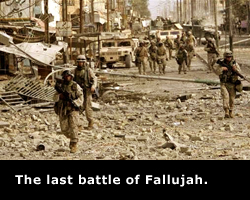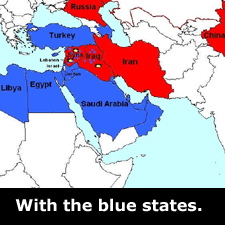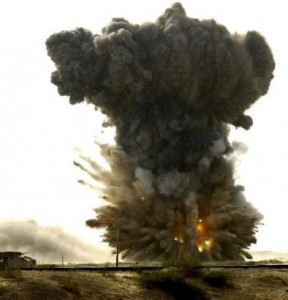If there is one enduring truth about America, it is this: we are extremely good at making a mess and abysmally inept at cleaning it up.
The Veterans Administration controversy has been over a decade in the making, and is nothing unprecedented or even particularly unusual. Recall that the Afghan and Iraq wars were supposed to be conducted, in essence, free of charge with minimal casualties. The Iraq war, in particular, was low-balled by Bush administration officials, most notably Paul Wolfowitz, who opined to Congress that it might cost us a billion or two. They were convinced that the war would be short and sweet. They did not plan for the occupation of Iraq, nor did they plan for decades of health care services for returning veterans. It was going to be a cake walk.
 Yeah, not so much. But it did sound good at the time, didn’t it? And now, many deaths, dismemberments, and billions of dollars later, we are faced with an enormous backlog of wounded and battle-stressed soldiers, attempting to access a VA system that does not have the physical infrastructure to serve them in a timely fashion. That’s a large part of what’s behind the deceptive practices we are hearing about now – people trying to feign success when the system is failing miserably, at least on the intake end.
Yeah, not so much. But it did sound good at the time, didn’t it? And now, many deaths, dismemberments, and billions of dollars later, we are faced with an enormous backlog of wounded and battle-stressed soldiers, attempting to access a VA system that does not have the physical infrastructure to serve them in a timely fashion. That’s a large part of what’s behind the deceptive practices we are hearing about now – people trying to feign success when the system is failing miserably, at least on the intake end.
It is worse than that, though. We also never provided adequately for veterans of either the Vietnam War or the Gulf War. Vietnam vets faced similar problems with the VA upon their return, and now as they age they are coping with the same types of difficulties as Iraq vets: not enough primary care doctors, not enough admission capacity at VA hospitals … simply put, not enough resources to serve them.
I used to bring my dad to the VA hospital in Syracuse so that he could get discounted medications for his glaucoma. That was long before the post-9/11 wars, and outpatient services seemed adequate, if a little stretched. What we need to do, more than anything, is roll the costs of veteran recovery and long-term healthcare planning into any proposed deployment before we undertake it. Just like the oil industry should be expected to invest in proven safety and recovery technologies before they drill, we should plan on these expenses instead of minimizing the impact of war on the lives of our military families and the wealth of the nation.
How can we act surprised when the predictable consequences of more than a decade of war come to pass?
luv u,
jp


 Really? Just a little bit of context might be nice. What was Kerry doing there in the 1960s again? Vacationing? No. Oh, that’s right – he was part of a massive invasion force that was grinding Vietnam – particularly southern Vietnam – to a bloody pulp, leaving probably 2 million dead and three countries destroyed; a massive crime that we have never been held accountable for. I think it’s a little premature to lecture Hanoi on human rights, frankly.
Really? Just a little bit of context might be nice. What was Kerry doing there in the 1960s again? Vacationing? No. Oh, that’s right – he was part of a massive invasion force that was grinding Vietnam – particularly southern Vietnam – to a bloody pulp, leaving probably 2 million dead and three countries destroyed; a massive crime that we have never been held accountable for. I think it’s a little premature to lecture Hanoi on human rights, frankly. Our drone war in Pakistan-Afghanistan, and essentially everywhere else, runs on a similar principle. It isn’t as all-out, of course, but it appears to be nearly as random. And just as every living thing in the Vietnamese countryside was assumed to be Viet Cong, every military age male in the tribal areas of Pakistan is, by definition, an extremist, a combatant, a terrorist, and therefore the target of killer drones, piloted by some dude who works at a terminal in a trailer about fifty miles from where I’m sitting right now.
Our drone war in Pakistan-Afghanistan, and essentially everywhere else, runs on a similar principle. It isn’t as all-out, of course, but it appears to be nearly as random. And just as every living thing in the Vietnamese countryside was assumed to be Viet Cong, every military age male in the tribal areas of Pakistan is, by definition, an extremist, a combatant, a terrorist, and therefore the target of killer drones, piloted by some dude who works at a terminal in a trailer about fifty miles from where I’m sitting right now. We have, under the banner of American Exceptionalism, invaded any number of third-world countries over the past century and a quarter. The results have not been positive. (Just ask them.) Putin and others are approaching us as if conducting an intervention; trying to keep us from repeating the same bad behavior, over and over again. You know you have a problem when it takes Russia and China to talk you down. One can only hope that they succeed. This Syria intervention is just a crazy, bad idea, and one that the president seems very attached to. It’s a kind of madness, executive power, and it’s long since taken hold of old Barry-O.
We have, under the banner of American Exceptionalism, invaded any number of third-world countries over the past century and a quarter. The results have not been positive. (Just ask them.) Putin and others are approaching us as if conducting an intervention; trying to keep us from repeating the same bad behavior, over and over again. You know you have a problem when it takes Russia and China to talk you down. One can only hope that they succeed. This Syria intervention is just a crazy, bad idea, and one that the president seems very attached to. It’s a kind of madness, executive power, and it’s long since taken hold of old Barry-O. Obama drew a red line. That is what we are defending. Our action will do nothing to protect civilians in Syria. It will do nothing to tamp down the flames of civil war. Far from it, in fact … it will pour gasoline on the conflict, quite probably enabling it to spread dramatically beyond that sorry nation’s borders. All across the media, there’s this tiresome meme about how we have to do something, something to punish the Assad regime. If we allow them to get away with this, the story goes, it will embolden them to go further and embolden others to follow suit. Obama seems to think it’s just two days of bombing and then off to Switzerland. What’s wrong with this picture?
Obama drew a red line. That is what we are defending. Our action will do nothing to protect civilians in Syria. It will do nothing to tamp down the flames of civil war. Far from it, in fact … it will pour gasoline on the conflict, quite probably enabling it to spread dramatically beyond that sorry nation’s borders. All across the media, there’s this tiresome meme about how we have to do something, something to punish the Assad regime. If we allow them to get away with this, the story goes, it will embolden them to go further and embolden others to follow suit. Obama seems to think it’s just two days of bombing and then off to Switzerland. What’s wrong with this picture? What was the crime again? Oh, yes. Exposing the sprawling criminality of our foreign policy, namely the Iraq war and the Afghan war, plus releasing a raft of diplomatic cables relating to prosecution of the global war on tactics … I mean, terror. Heinous indeed. Perhaps someone needs to remind me again why the man who informed us of the war’s true impact is going to jail while the men who started the war are living a comfortable – and loudly opinionated – retirement. Rank has its privileges, to be sure.
What was the crime again? Oh, yes. Exposing the sprawling criminality of our foreign policy, namely the Iraq war and the Afghan war, plus releasing a raft of diplomatic cables relating to prosecution of the global war on tactics … I mean, terror. Heinous indeed. Perhaps someone needs to remind me again why the man who informed us of the war’s true impact is going to jail while the men who started the war are living a comfortable – and loudly opinionated – retirement. Rank has its privileges, to be sure. Even something as seemingly simple as closing Guantanamo. It would have enormous symbolic value, of course. But even though the president professes to want it closed, it remains open. Why? Why haven’t those cleared for release been released? Why haven’t the ones determined innocent / not a threat been moved to some residential setting that isn’t a prison cell? It’s almost as if that policy level is beyond the reach of democratically elected officials. We seem frozen in place since 9/11, unable to adjust our course, unable to accomplish practically anything aside from blowing things up, assassinating people, and spying on their ass. Hunger striking inmates are force fed, even though the president – a constiitutional lawyer – knows that that is abusive and wrong. Can’t change it.
Even something as seemingly simple as closing Guantanamo. It would have enormous symbolic value, of course. But even though the president professes to want it closed, it remains open. Why? Why haven’t those cleared for release been released? Why haven’t the ones determined innocent / not a threat been moved to some residential setting that isn’t a prison cell? It’s almost as if that policy level is beyond the reach of democratically elected officials. We seem frozen in place since 9/11, unable to adjust our course, unable to accomplish practically anything aside from blowing things up, assassinating people, and spying on their ass. Hunger striking inmates are force fed, even though the president – a constiitutional lawyer – knows that that is abusive and wrong. Can’t change it. Already, I have heard more about the numbers of killed in Syrian than I ever heard about the Iraq catastrophe. Again, no surprise. The government and the press meticulously count the victims of official enemies, but when it comes to the corpses generated by our misguided policies, we don’t do body counts. They still won’t put a realistic number on the lives lost in Iraq, hovering around the casual 30K guess Bush made in 2007 or so. I suppose once we have both legs in the mire of this conflict they will stop counting again. But for now, the statistics are useful – they are trying to push the American people closer to intervention, and it’s evident that the effort isn’t working very well. Less than one in four is in favor of intervention.
Already, I have heard more about the numbers of killed in Syrian than I ever heard about the Iraq catastrophe. Again, no surprise. The government and the press meticulously count the victims of official enemies, but when it comes to the corpses generated by our misguided policies, we don’t do body counts. They still won’t put a realistic number on the lives lost in Iraq, hovering around the casual 30K guess Bush made in 2007 or so. I suppose once we have both legs in the mire of this conflict they will stop counting again. But for now, the statistics are useful – they are trying to push the American people closer to intervention, and it’s evident that the effort isn’t working very well. Less than one in four is in favor of intervention.